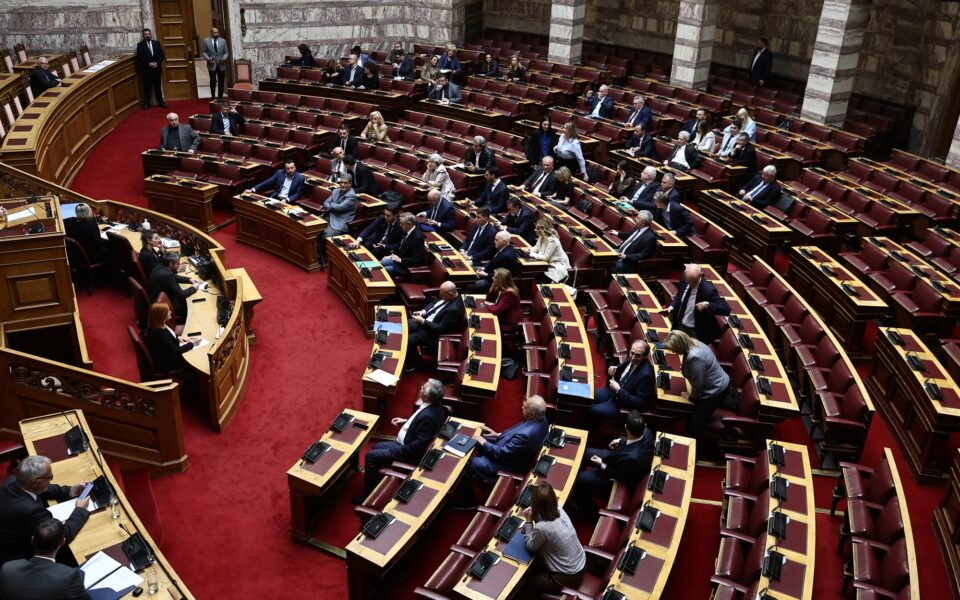Tempe rail tragedy looms large over Euro polls

The government is expected to survive a no-confidence vote on Thursday, pushed forward by opposition parties, but pressure is growing over the Tempe train crash.
The country’s deadliest train crash, which cost the lives of 57 people – mostly students – and has shocked Greek society, has been dominating the political agenda for weeks, and polls show mounting distrust in the country’s institutions, with almost nine in 10 respondents saying that neither the judicial nor the political system has moved effectively for justice to be served for the rail crash and 77% considering there is an attempted cover-up.
“The government hoped that they had managed to turn the page and move on,” said Wolfango Piccoli, co-founder of risk analysis company Teneo. “That obviously has not worked; actually, the aggressive stance they took has backfired.”
However, he adds, the issue doesn’t pose a threat, because it is obvious the government will survive the motion against it, as it holds a comfortable majority in Parliament. The question now will be to what extent this could affect the performance of New Democracy in the European elections.
“It is more about the wear and tear, losing the trust of the public, which we see in polls with the numbers going down,” he said. “The hope that after the confidence vote, this would be the end of it, remains to be seen. The longer it drags on, the higher the risk that it might affect the performance of the party.”
Political analyst Maria Karaklioumi argues that the government is put on the defensive with this political debate mainly by the public: the 1.3 million people calling for the politicians’ immunity to be lifted and the vast majority considering there is a cover-up.
‘The government hoped that they had managed to turn the page and move on. That obviously has not worked; actually, the aggressive stance they took has backfired’
“Assuming political responsibility is now a social demand,” said Karaklioumi, “Tempe is Greece in the mirror. It is a country that made contracts, assignments that were never fully completed, that placed people in positions because of their proximity to the political system rather than their efficiency. The handling of the crisis is also Greece in the mirror.”
Opposition’s baby steps
The opposition parties had to join forces in order to gather the MPs required to submit the motion of no confidence. But analysts argue that we shouldn’t read too much into that.
“Opposition parties joined forces, but it’s a one-off,” said Piccoli, adding that they don’t seem to be particularly convinced about that, especially looking at the comments by the main opposition SYRIZA leader.
Despite SYRIZA MPs supporting the motion of no confidence, Stefanos Kasselakis attempted to bypass PASOK’s initiative by calling for double elections in June at a time when the majority of the parliamentary group and members of SYRIZA were calling on the leadership team not to throw away the opportunity to form a common front at this critical juncture when the government is under pressure. He also called the discussion in Parliament a mere cockfight, where everyone will try to win.
“I don’t think it is a new beginning or an indication that the opposition will be working together more in the future to try to put the government in a difficult spot,” Piccoli added.
“This joint move by opposition parties was made out of necessity,” said Karaklioumi, adding though that it is a positive one, as they started to put pressure on the government, “which is finally coming into the situation to see what it’s like to have an opposition.” But she adds, until June 9 and the European elections, everything will be a competition between them.
All opposition parties will try to score some points and focus on their own ratings. Whether they will manage to join forces later will depend on the outcome of the elections.





